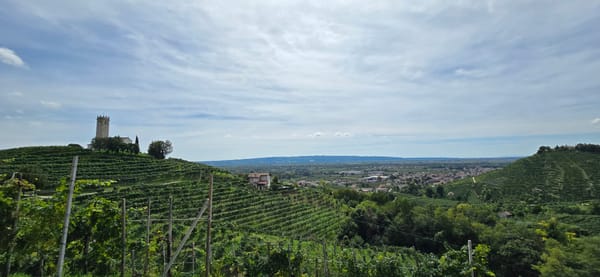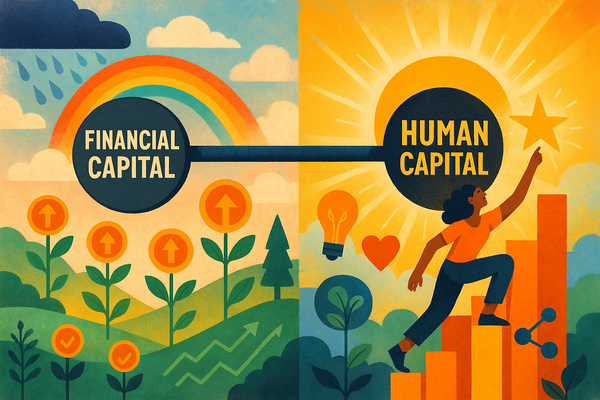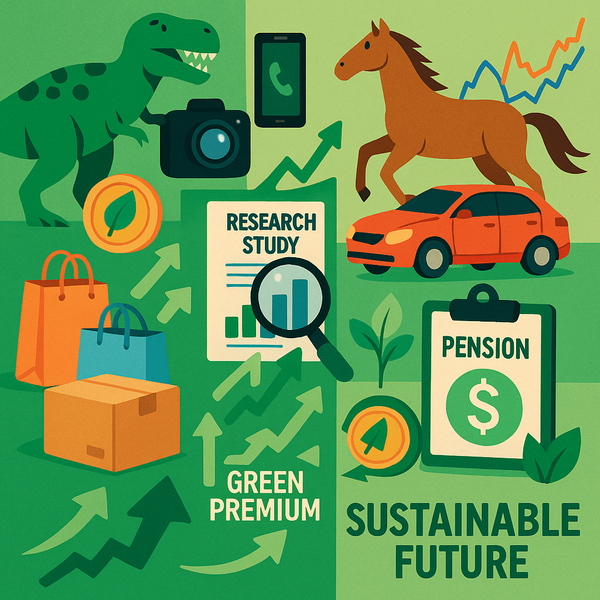The 2 Most Important Graphs in Retirement Planning
A wake-up call for the retirement myth. This article challenges the illusion of a stable future and explores how to transition from traditional financial planning to a purpose-led, planet-positive life in a world facing climate and economic upheaval.
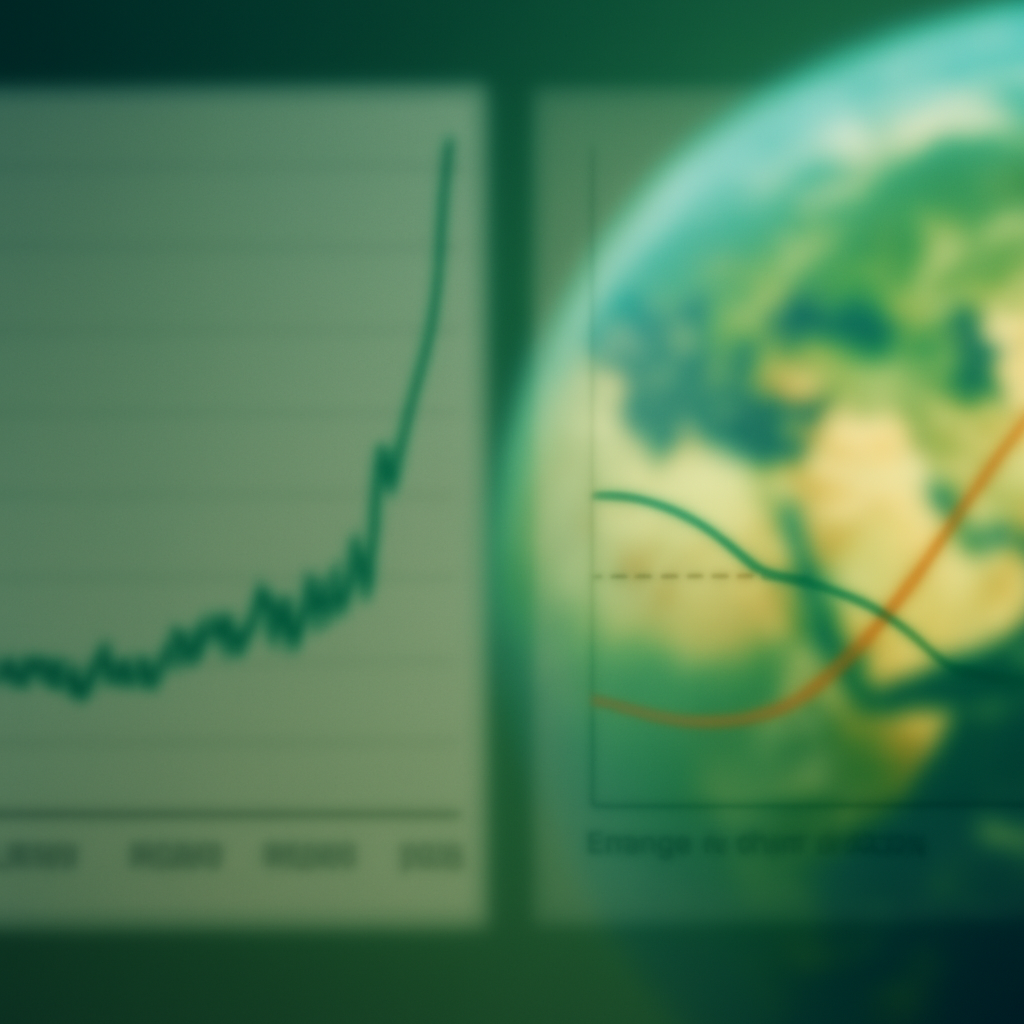
I was privileged to attend an online event last Saturday involving some modern day revolutionaries. It left me feeling even more emboldened to be honest and frank – about our future.
Let's face it. We're being sold a lie – about the idea of a comfortable retirement. The one involving sipping margaritas on a beach somewhere, while the world hums along nicely. The problem? The world isn't humming along nicely. It's teetering on the edge of a climate cliff, and our traditional notions of retirement are looking increasingly… well, irrelevant.
The online event involved a gathering of around 150 souls, but a powerful bunch. Think founders of Extinction Rebellion, scientists, new-wave economists, and journalists – all challenging the mainstream narrative. It was an eye-opener. A stark realisation that the comfortable future we've been striving for is likely a mirage.
This article isn't about scaring you. It's about waking you up. About challenging the "everything is fine / the future will be calm" message that is supported by mainstream media. Challenging the false sense of future stability that the mainstream retail finance industry is (mis)-selling you. And about offering a different path – a path towards purpose, resilience, and an alternative future worth fighting for.
These Graphs Don't Lie
I want to draw your attention to 2 graphs. The first shows CO2 equivalent greenhouse gasses in the atmosphere for the past 130,000 years. For almost all of that time, it stayed below 280ppm. As of 2024, it's at 573ppm and rising. One mind-boggling statistic that accompanied this picture. "The energy this extra level of greenhouse gas is forcing into the atmosphere is equivalent to a billion Hiroshima atom bombs going off each year." – Leon Simons
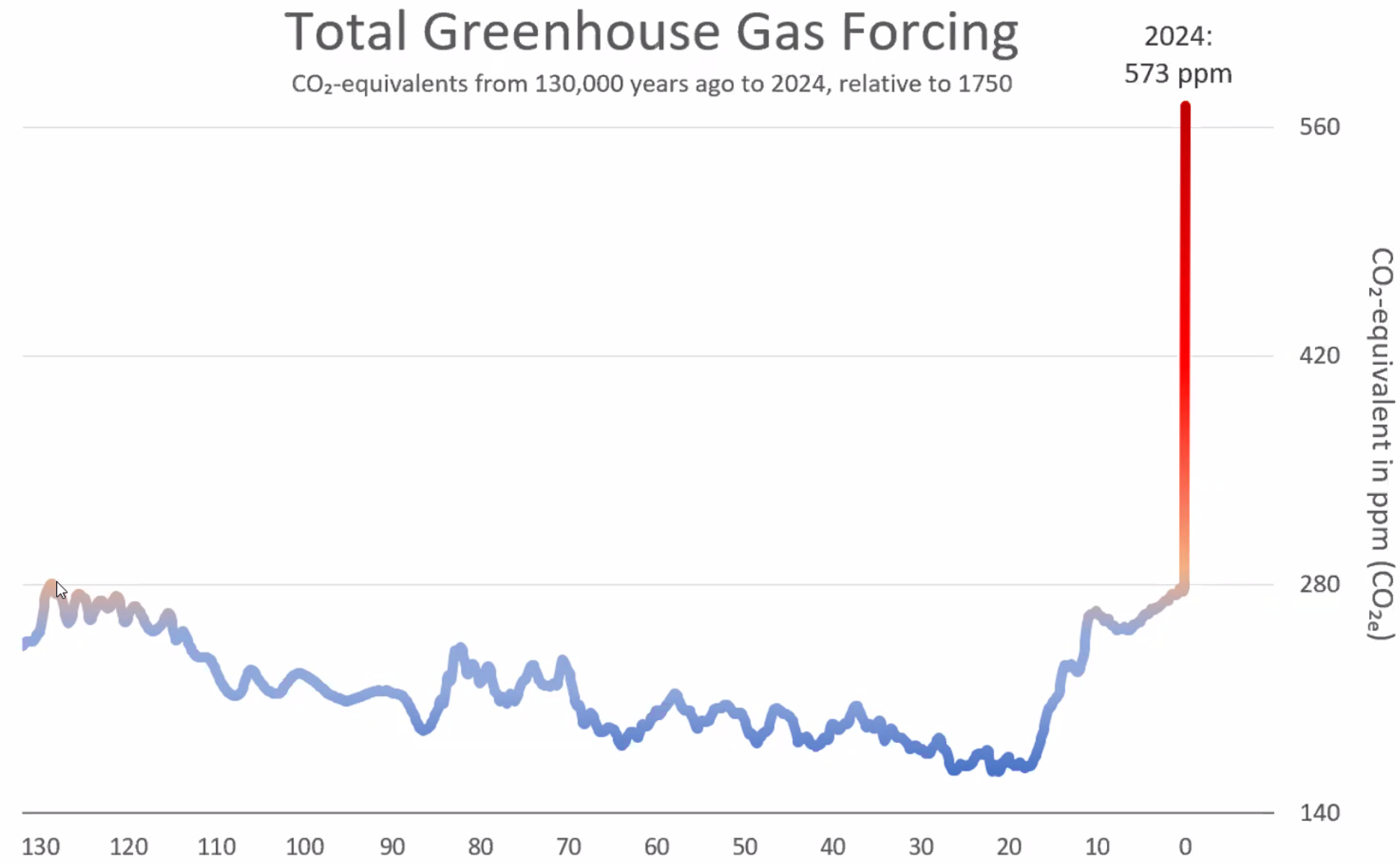
The graph isn't new. Many of us have seen this before. But the message it gives is profound. It is one that we need to be constantly reminded of, so we keep it front of mind.
The second graph shows the "aerosol effect" and its impact on temperature. Greenhouse gases are rapidly increasing. Here's the new realisation that I hadn't really quite appreciated before: the "aerosol effect" of burning fossil fuels has also been cooling the atmosphere, masking the true impact. As we move to a net zero future, this cooling effect disappears, and we face the full force of the CO2 we've already pumped into the atmosphere.
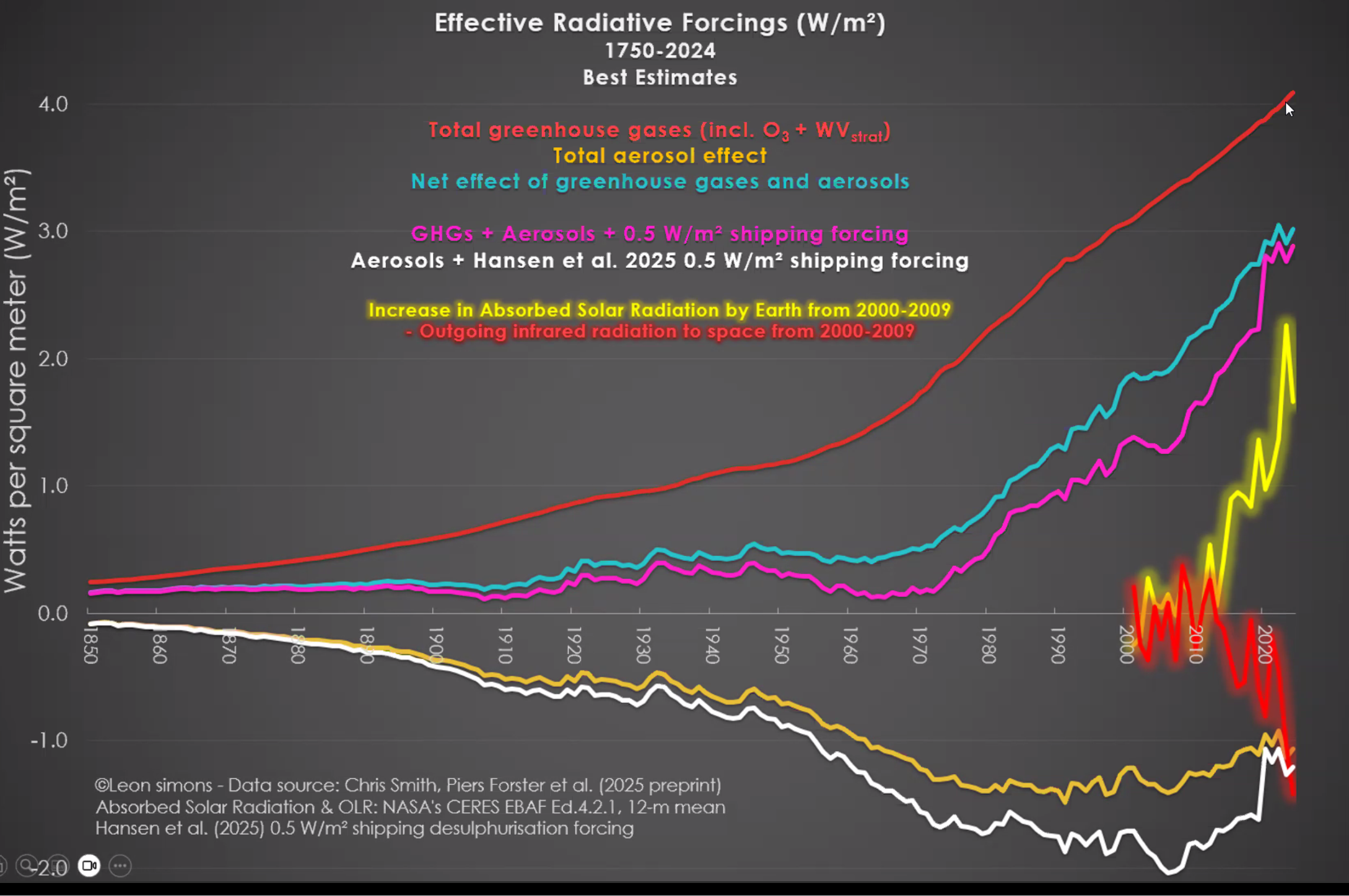
As one leading thinker in the space stated, "There is now nothing we can do." That might sound bleak, but it's a call to action. We need to buckle up and prepare for a world of extreme volatility and change. The Paris Agreement goal of 1.5C is now impossible. Net Zero, while still essential, isn't a silver bullet. Even if we stopped emitting carbon tomorrow, we're still in a deeply troubling place. Geoengineering now needs to be a serious consideration.
Given the path the planet is on, many think that revolution or transformation (however you want to spin it) will now be inevitable. As we go down a path of "degrowth by disaster" the capitalist system is essentially going to eat away at itself. The question is, what form of revolution do we want to create?
Sound like a provocative talk? An increasing number of big financial institutions are also coming to the same realisation. As highlighted before, Allianz recently stated that we're on the path to the collapse of the capitalist system. Norge Bank is preparing for economic disruption that makes 2008 look modest. Even the largest bank in the world JP Morgan expects a 3C world of climate catastrophe. Its recommendation? Invest in the air-conditioning industry. Really?! <insert your own expletive>.
Beyond "Retirement": Embracing Purpose in a World of Degrowth
So, what does all this have to do with retirement? Everything. The traditional concept of retirement – a life of leisure funded by carefully accumulated wealth – is becoming a relic of a bygone era. It's a dream built on the assumption of a stable, predictable future. That future no longer exists.
At the conference, it was telling to hear from those who have led the non-violent disruptive protests of recent years to raise awareness about climate change. They think that this tactic is no longer needed. As Mother Nature is now going to be taking on that role in the years to come.
Something that many highlighted as now imperative: We need to paint a picture of a new world we want to live in. An attractive, substitute world that we grow in parallel, and becomes the inevitable world into which we switch into. The mindset needs to be one of hope & optimism, instead of focusing on guilt, as this is more likely to motivate people.
It was encouraging to hear a reiteration of the important message I've talked about before. Mindset is crucial. It is ultimately about moving from an individualistic mindset to a collective mindset. For centuries now, the central human objective has been the relentless pursuit of wealth and power. This needs, and will likely, change as part of the coming transformation. As Jeremy Lent, a visionary thinker, puts it, we need to shift towards an "ecological civilization" – a world where the flourishing of life is our central purpose.
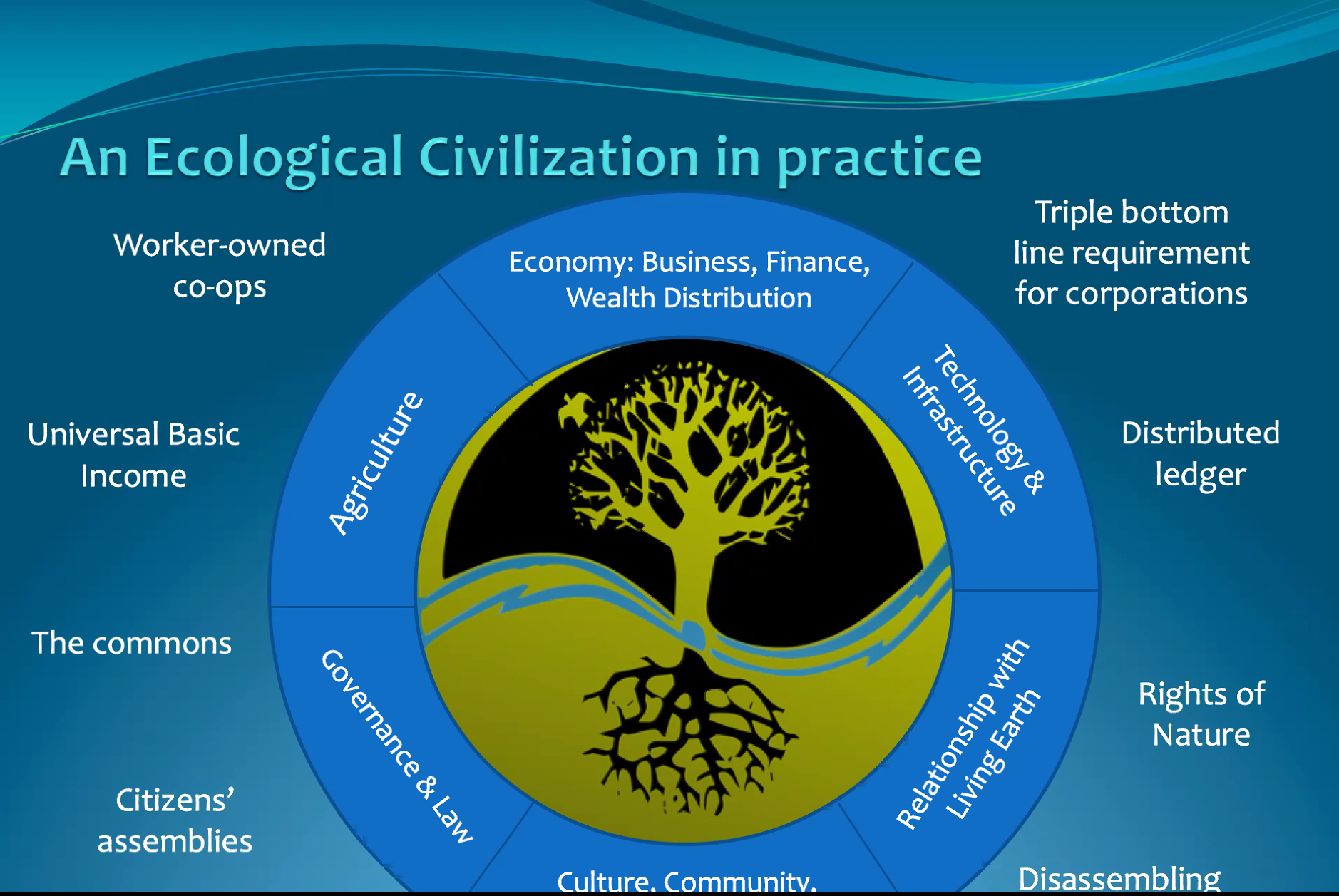
This involves alternatives to every aspect of life. Replacing our current political systems with one built around citizens assemblies that limit giving too much power to any individual. Replacing the current centrally controlled media, with a decentralised independent alternative. Building on the concepts of common form of ownership. Recognising diversity in how we go about society. Creating work opportunities for all that focus on regeneration and restoration. Alternative decentralised finance systems and structures, such as cryptocurrency and crowdfunding approaches.
From Retirement to Revolution: 5 Steps to a Purposeful Transition
This isn't about tweaking your investment portfolio; it's about transforming your life. It's not just about finding your place, but helping to create, this emerging "ecological civilization." So, how do you start?
Here are five steps to help you move beyond the outdated concept of retirement and contribute to building a resilient, regenerative future:
- Question Everything
Challenge your assumptions about work, wealth, and success. Are you chasing a dream that no longer serves you? What truly matters to you? What would you regret not doing if you knew the world was about to change dramatically?
- Identify Your Talents & Passions
What are you good at? What do you love to do? How can you use your skills to contribute to the "ecological civilization"?
As AI takes away many of our jobs in the coming years, there is still no shortage of work needed to build this new world. Society needs people to innovate, to create, to teach, to inspire, to support, to empathise, to heal, to collaborate, to nurture, to listen, to adapt, to mediate, to mentor, to design, to regenerate, to steward, to organise, to cultivate, to story-tell, to care, to build trust, to vision, to reconcile, to imagine, to mobilise, to empower, to learn, to feel, to simplify and to protect... in short, the world needs your talents.
- Connect with Like-Minded Communities
You're not alone. Seek out others who are working towards a better future. Join or create networks focused on regeneration, resilience, and alternative solutions. Attend the next Rev21 event in October. The power of collective action is immense.
- Invest in the New Economy
Put your money where your mouth is. Support businesses and initiatives building a sustainable future, even if they don't offer traditional "returns." Think local food systems, renewable energy projects, and community-owned enterprises.
- Embrace Lifelong Learning & Adaptation
The future is uncertain; be prepared to evolve your skills and perspective. Stay curious, keep learning, and be open to new ideas. The ability to adapt will be crucial in the years to come.
The traditional concept of retirement, as we used to know it, is dead. But the future, whilst admittedly scary, is far from bleak. It's an opportunity to create a more just, sustainable, and meaningful world. A world where our purpose isn't to accumulate wealth, but to contribute to the flourishing of life.
You in?
If so, click reply. Let's talk about it. How does this make you feel?
Let's encourage others too. Please do share this with someone you think will appreciate it, and who will act upon it.
Disclaimer:
The information provided is for general informational purposes only and does not constitute investment, financial, tax, or legal advice. Please be aware that an investment strategy that is appropriate for one person, may not be appropriate to another, including yourself. Past performance is not indicative of future results. In tailoring your own personal investment strategy it is recommended to speak to a qualified professional.

